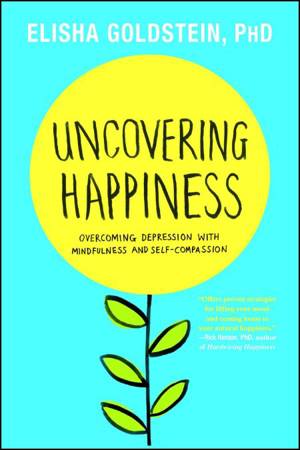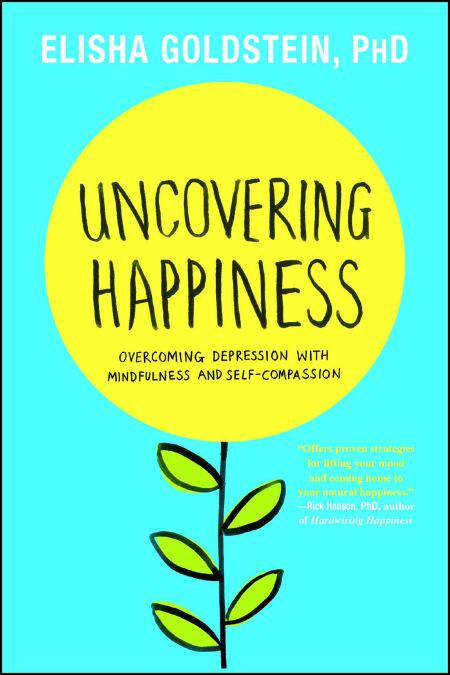
- Afhalen na 1 uur in een winkel met voorraad
- Gratis thuislevering in België vanaf € 30
- Ruim aanbod met 7 miljoen producten
- Afhalen na 1 uur in een winkel met voorraad
- Gratis thuislevering in België vanaf € 30
- Ruim aanbod met 7 miljoen producten
Zoeken
Uncovering Happiness E-BOOK
Overcoming Depression with Mindfulness and Self-Compassion
Elisha Goldstein
E-book | Engels
€ 15,65
+ 15 punten
Omschrijving
In seven simple steps, Uncovering Happiness uses cutting-edge mindfulness and self-compassion techniques along with innovations in neuroscience to help you combat depression and take back control of your mind, your mood, and your life.
Most of us believe when we’re depressed that our situation is hopeless. That’s a mistake. Dr. Elisha Goldstein reassures us that the secret to overcoming depression is in harnessing our brain’s own natural antidepressant power to create a more resilient mind.
Uncovering Happiness is grounded in two key foundations: mindfulness, which research shows reduces the risk of relapse and can be a powerful alternative to medication, and self-compassion, a state of mind in which you understand your own suffering with an inclination to support yourself. Dr. Goldstein explores these tools—as well as purpose, play, and confidence—and the specific techniques we can use to put them into action. Together, these elements can transform an experience that would typically force us into a downward spiral into an opportunity to establish self-worth.
At its core, Uncovering Happiness is a persuasive argument for hope. Just because you’ve suffered from depression in the past doesn’t mean you must do so in the future. By learning to build up the sections of the brain that protect you from the disease and slow down the sections that foster it, you can enjoy the good times, survive the difficult times, and open yourself up to a life that truly feels worth living.
Most of us believe when we’re depressed that our situation is hopeless. That’s a mistake. Dr. Elisha Goldstein reassures us that the secret to overcoming depression is in harnessing our brain’s own natural antidepressant power to create a more resilient mind.
Uncovering Happiness is grounded in two key foundations: mindfulness, which research shows reduces the risk of relapse and can be a powerful alternative to medication, and self-compassion, a state of mind in which you understand your own suffering with an inclination to support yourself. Dr. Goldstein explores these tools—as well as purpose, play, and confidence—and the specific techniques we can use to put them into action. Together, these elements can transform an experience that would typically force us into a downward spiral into an opportunity to establish self-worth.
At its core, Uncovering Happiness is a persuasive argument for hope. Just because you’ve suffered from depression in the past doesn’t mean you must do so in the future. By learning to build up the sections of the brain that protect you from the disease and slow down the sections that foster it, you can enjoy the good times, survive the difficult times, and open yourself up to a life that truly feels worth living.
Specificaties
Betrokkenen
- Auteur(s):
- Uitgeverij:
Inhoud
- Aantal bladzijden:
- 320
- Taal:
- Engels
Eigenschappen
- Productcode (EAN):
- 9781451690569
- Verschijningsdatum:
- 26/01/2015
- Uitvoering:
- E-book
- Beveiligd met:
- Adobe DRM
- Formaat:
- ePub

Alleen bij Standaard Boekhandel
+ 15 punten op je klantenkaart van Standaard Boekhandel
Beoordelingen
We publiceren alleen reviews die voldoen aan de voorwaarden voor reviews. Bekijk onze voorwaarden voor reviews.








